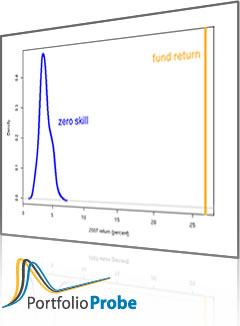Follow us using:
Newsletter Sign-up
Monthly Archives: January 2012
Review of “Models. Behaving. Badly.” by Emanuel Derman
Why confusing illusion with reality can lead to disaster, on Wall Street and in life. Note that the cover is more clever than you might at first notice. Ceci n’est pas une pipe. You might also have a guess at the reason for the punctuation in the title. Executive summary Non-quants should embrace models more, … Continue reading
Posted in Book review, Quant finance
Tagged efficient market hypothesis, efficient market model
13 Comments
Positional stocks
Conspicuous consumption — buying what others can’t afford — is a disequilibriating force. Prices get raised and supply is limited. The goods that are conspicuously consumed are positional goods. A similar phenomenon occurs in the stock market. AAPL currently seems to fit the mold. Fashion changes. I don’t much believe in predictions, but I predict … Continue reading
London Quant Group and other upcoming events
London Quant Group Monday 2012 January 30 starting at 6.30pm, to be held at the offices of BlackRock, 12 Throgmorton Avenue, London. Jason MacQueen speaking on “The Structure of Equity Risk Models”. Abstract:There are a number of different ways to build equity risk models, and some are demonstrably better than others. This talk will first … Continue reading
Posted in Events
Leave a comment
The distribution of financial returns made simple
Why returns have a stable distribution As “A tale of two returns” points out, the log return of a long period of time is the sum of the log returns of the shorter periods within the long period. The log return over a year is the sum of the daily log returns in the year. … Continue reading
How to search the R-sig-finance archives
A not unusual part of a response on the R-sig-finance mailing list is: “Search the list archives.” In principle that makes sense. In practice it might not be clear what to do. Now it should be. The list The R-sig-finance mailing list deals with the intersection of questions about the R language and finance. It … Continue reading
A slice of S&P 500 skewness history
How symmetric are the returns of the S&P 500? How does the skewness change over time? Previously We looked at the predictability of kurtosis and skewness in S&P constituents. We didn’t see any predictability of skewness among the constituents. Here we look at skewness from a different angle. The data Daily log returns of the … Continue reading
Physical books of “The R Inferno” and “S Poetry”
Hardcopy versions of both The R Inferno and S Poetry are now available for sale. Physical economy Buy The R Inferno (the version dated 2011 April 30) Buy S Poetry Discount The publisher, Lulu, has a coupon for a 25% discount off purchases (up to a maximum of $50) that is good until the … Continue reading
Posted in R language
Tagged R abnormalities, R absurdities, R anomalies, R oddities, R peculiarities, R quirks, R trouble spots, S Poetry, The R Inferno
Leave a comment
Lessons from warblers and sticklebacks
Falkenblog has a post on ecological studies of animal intelligence. The entire post is interesting, but I particularly like his last sentence: [I]f you think that because you have a really high IQ, are really rich, or are a good speaker, you are therefore the smartest guy in any room, you are going to make … Continue reading
Posted in Fund management in general
Leave a comment
Sensitivity of risk parity to variance differences
Equal risk contribution of assets determines the asset weights given the variance matrix. How sensitive are those weights to the variance estimate? Previously The post “Risk parity” gave an overview of the idea. In particular it distinguished the cases: the assets have equal risk contribution groups of assets have equal risk contribution A key difference … Continue reading
Posted in Quant finance, R language
Tagged equal risk contribution, factor model, Ledoit-Wolf shrinkage, risk parity
2 Comments
The top 7 portfolio optimization problems
Stumbling blocks on the trek from theory to practical optimization in fund management. Problem 1: portfolio optimization is too hard If you are using a spreadsheet, then this is indeed a problem. Spreadsheets are dangerous when given a complex task. Portfolio optimization qualifies as complex in this context (complex in data requirements). If you are … Continue reading
